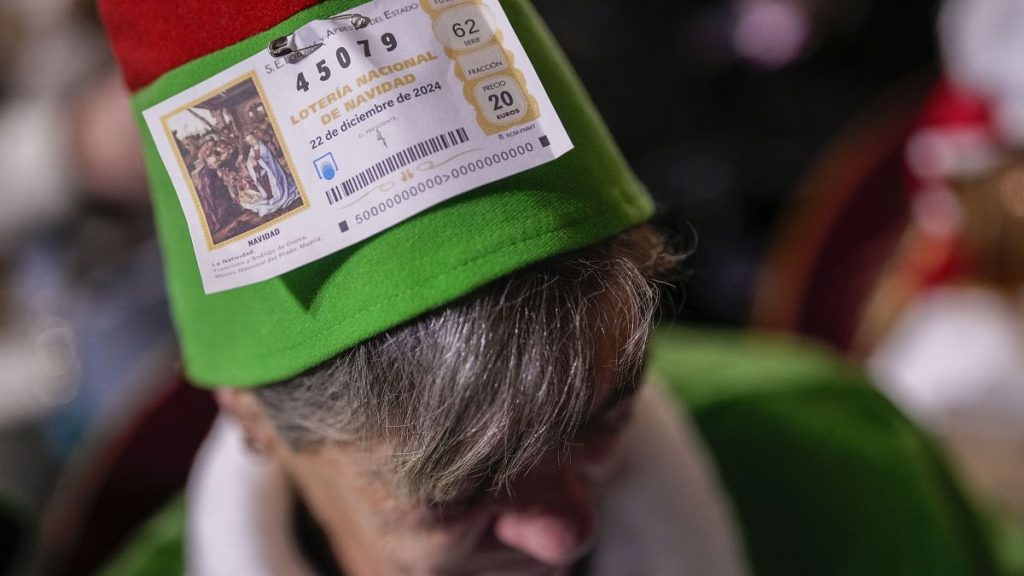The Spanish Christmas Lottery, affectionately known as “El Gordo” or “The Fat One,” is a global phenomenon, captivating millions with its immense prize pool and deeply ingrained cultural significance. Dating back to 1812 during the Napoleonic Wars, this annual tradition has persevered through centuries, evolving into a cornerstone of Spanish holiday festivities. While other lotteries may boast larger individual jackpots, El Gordo distinguishes itself by distributing a staggering sum of prize money across a vast number of winners, fostering a sense of shared fortune and national unity. The 2023 draw exemplified this characteristic, dispensing a total of €2.7 billion, with the lion’s share allocated to smaller winnings, ensuring that the holiday spirit of generosity permeated throughout the nation.
This year’s grand prize, the coveted “El Gordo,” amounted to €400,000 before taxes per winning ticket, and remarkably, multiple tickets bearing the fortunate number 72480 were sold, primarily in Logroño, a city renowned for its exquisite wines in the La Rioja region of northern Spain. The lottery’s unique structure allows for the sale of multiple tickets with the same number, often to different groups or syndicates. Furthermore, each full ticket can be divided into ten fractions, known as “décimos,” which are commonly purchased and shared among family, friends, and colleagues, amplifying the communal aspect of the lottery. This tradition of sharing décimos, typically costing €20 each, transforms the lottery into a collective experience, binding communities together in anticipation and shared hope.
The time-honored drawing ceremony takes place in Madrid’s Teatro Real opera house, a grand stage for a deeply cherished national event. Students from the San Ildefonso school, a tradition dating back to the lottery’s inception, meticulously select the winning numbers from two revolving orbs, their voices resonating through the historic venue as they sing out the combinations in a cadence instantly recognizable to Spaniards across the country. The event, broadcast nationally, draws an enthusiastic audience, many of whom arrive dressed in elaborate costumes, transforming the opera house into a vibrant tapestry of festive attire, from literary figures like Don Quixote to whimsical Christmas elves and even representations of the lottery itself. This theatrical spectacle underscores the lottery’s cultural significance, elevating it beyond a mere game of chance to a celebrated national pastime.
María Ángeles, a teacher who journeyed from the southwestern province of Badajoz with a group of 14 friends and family members to witness the spectacle firsthand, embodies the spirit of El Gordo. Despite waiting for hours to secure a seat inside the opera house, she emphasized that the true reward lies in the collective anticipation and shared hope. Even though her group’s winnings were modest, totaling no more than €140 per person, the experience transcended monetary gain, reinforcing the lottery’s underlying theme of shared excitement and communal celebration. This sentiment exemplifies the essence of El Gordo, where participation and the shared dream of fortune outweigh the pursuit of individual riches.
The Spanish Christmas Lottery is meticulously designed to distribute winning numbers to the widest possible audience, ensuring that fortune, however small, touches a significant portion of the population. Beyond the grand prize, hundreds of smaller prizes and 13 major awards are distributed, maximizing the number of winners and reinforcing the lottery’s ethos of shared prosperity. In the weeks leading up to the draw, long queues form outside lottery offices across the country, particularly those with a history of selling winning tickets, a testament to the enduring popularity and ingrained hope associated with El Gordo. This annual ritual transforms the simple act of purchasing a lottery ticket into a vibrant expression of collective anticipation, uniting communities in a shared dream of holiday fortune.
The enduring legacy of the Spanish Christmas Lottery is a testament to its deep cultural roots and societal impact. Established in 1812 during a period of conflict, El Gordo has remarkably endured, evolving from its initial charitable purpose to become a symbol of national unity and shared hope. Its longevity, marked by the consistent participation of San Ildefonso school students and the unwavering enthusiasm of the Spanish public, solidifies its place as the world’s longest-running lottery. Originally conceived as a charitable endeavor by King Carlos III in 1763, the lottery’s historical trajectory reflects its enduring capacity to adapt and evolve while remaining true to its core principle of distributing wealth and fostering a sense of shared fortune amongst the Spanish populace.














